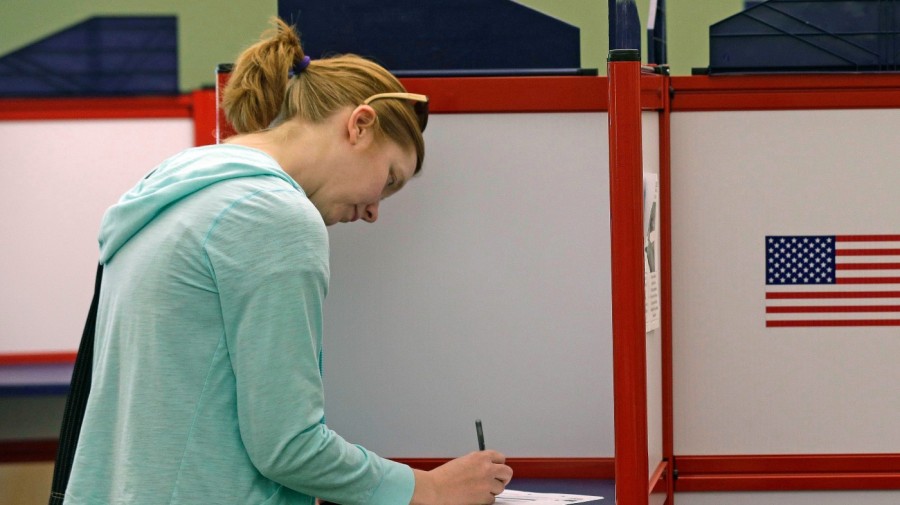The North Carolina Supreme Court on Friday overruled its previous decision that struck down the state’s GOP-drawn voting maps, finding that claims of partisan gerrymandering are political questions that cannot be resolved by the state’s courts.
The 5-2 party-line vote dismisses the underlying lawsuit that led to a sweeping election law clash at the U.S. Supreme Court, allowing the justices to potentially sidestep the dispute. The state court in separate rulings also reinstated laws that require voter-ID and prohibit certain felons from voting.
“Our constitution expressly assigns the redistricting authority to the General Assembly subject to explicit limitations in the text. Those limitations do not address partisan gerrymandering. It is not within the authority of this Court to amend the constitution to create such limitations on a responsibility that is textually assigned to another branch,” North Carolina Supreme Court Chief Justice Paul Newby, a Republican, wrote for the majority.
The court’s previous 4-3 Democratic majority had struck down the GOP-drawn map. After Republicans regained control in an expensive midterm election campaign, the party’s new 5-2 majority granted a request from GOP lawmakers to rehear the dispute, marking only the third time the court did so in the past three decades.
“Following decisions such as this, we must remember that, though the path forward might seem long and unyielding, an injustice that is so glaring, so lawless, and such a betrayal to the democratic values upon which our constitution is based will not stand forever,” Justice Anita Earls, a Democrat, wrote in dissent.
Her dissent was joined by the court’s other Democrat, Justice Michael Morgan.
“This is bad news for voters of North Carolina. BUT, with a conservative court in place, this will very likely prevent (or at least delay) the possible limiting of state court review of voter suppression laws elsewhere,” Marc Elias, whose law firm represented the plaintiffs, reacted on Twitter.
The new decision could impact a pending U.S. Supreme Court case with major nationwide implications for federal elections.
After the maps were struck down, the nation’s highest court agreed to take up an appeal from the Republican lawmakers.
The lawmakers advanced before the justices their maximalist argument known as the independent state legislature theory, which contends that the federal Constitution prohibits state courts and constitutions from limiting legislatures’ power to regulate federal elections.
Under that theory, the lawmakers asked the justices to reverse the state Supreme Court’s previous decision and rule that they had no authority to issue it.
But with that decision now overruled, the U.S. Supreme Court could dismiss the appeal without reaching the merits. When the rehearing was granted, the justices had questioned whether they still had authority to move ahead.
In separate rulings on Friday, also along partisan lines, the North Carolina Supreme Court reinstated laws that require voter-ID in the state and prohibit certain felons from voting.
“The General Assembly did not engage in racial discrimination or otherwise violate the North Carolina Constitution by requiring individuals with felony convictions to complete their sentences—including probation, parole, or postrelease supervision—before they regain the right to vote,” Republican Justice Trey Allen wrote for the court’s majority in the latter case.
In the voter-ID law dispute, the court’s Democratic majority had found the law was enacted with racially discriminatory intent, striking it down as a violation of the state constitution in December just before Republicans took control.
The party’s new majority granted rehearing in the case alongside the gerrymandering dispute.
“The people of North Carolina overwhelmingly support voter identification and other efforts to promote greater integrity and confidence in our elections. Subjective tests and judicial sleight of hand have systematically thwarted the will of the people and the intent of the legislature. But no court exists for the vindication of political interests, and judges exceed constitutional boundaries when they act as a superlegislature,” Republican Justice Phil Berger wrote for the majority in that case.
Updated: 1:07 p.m. ET

